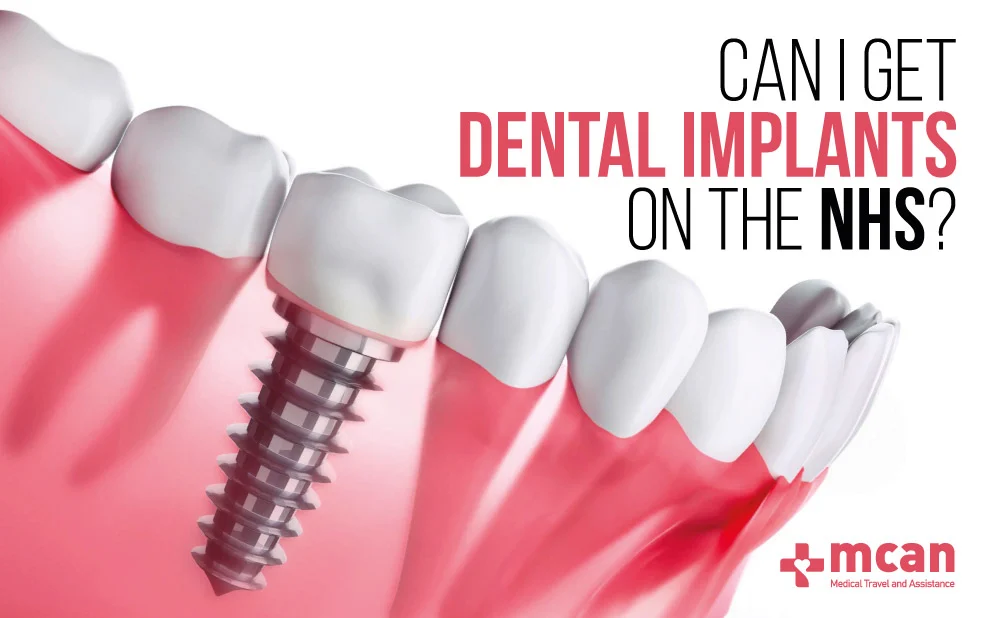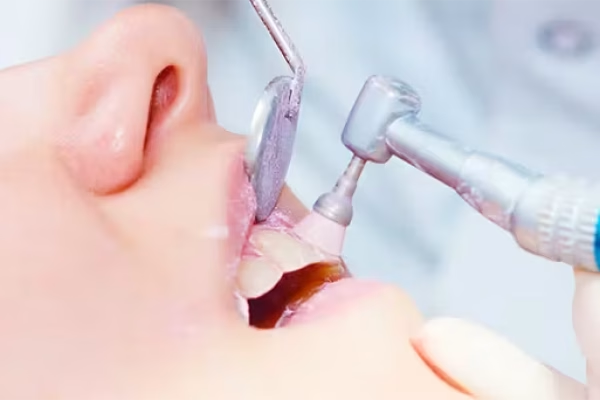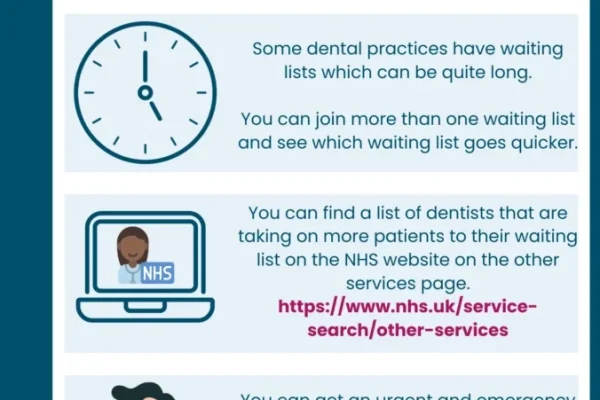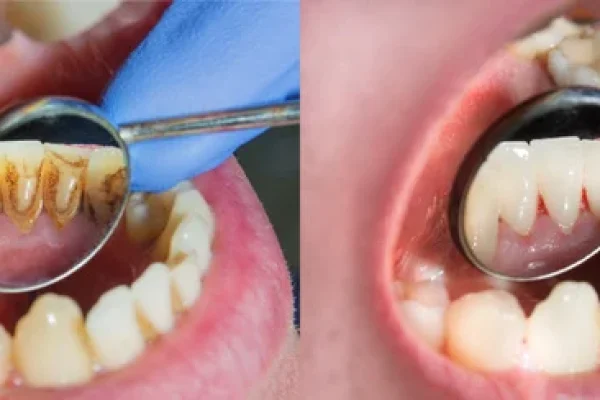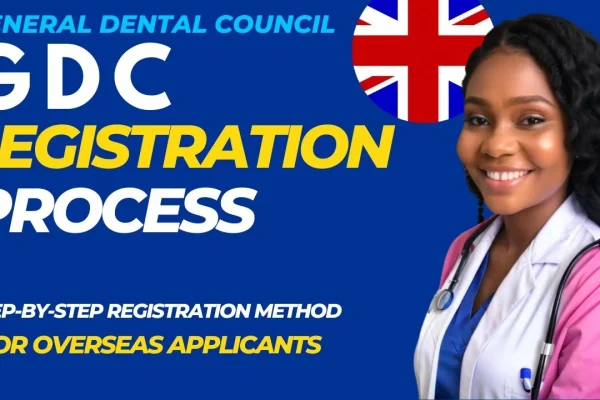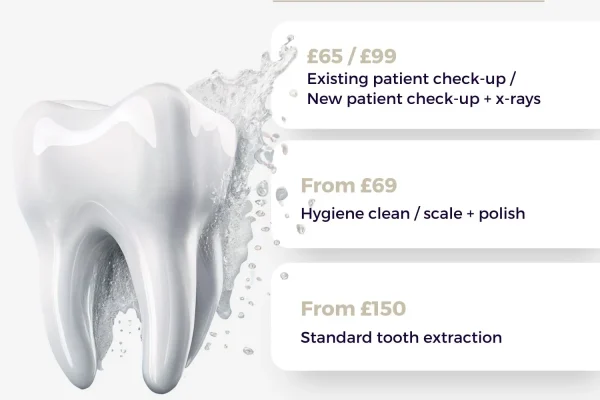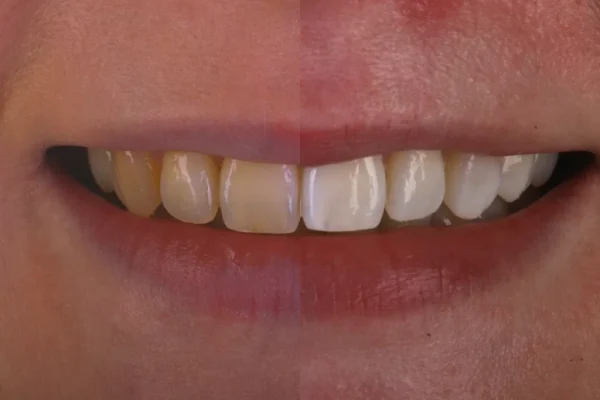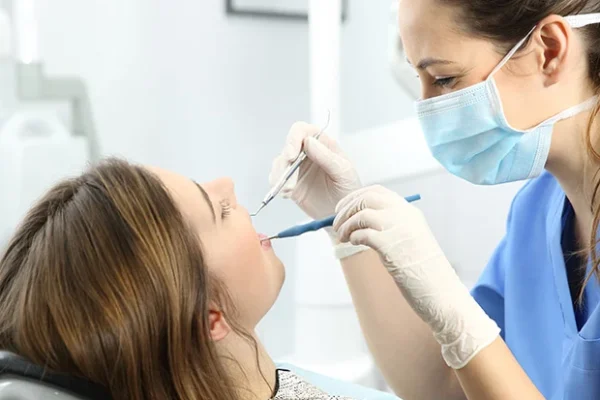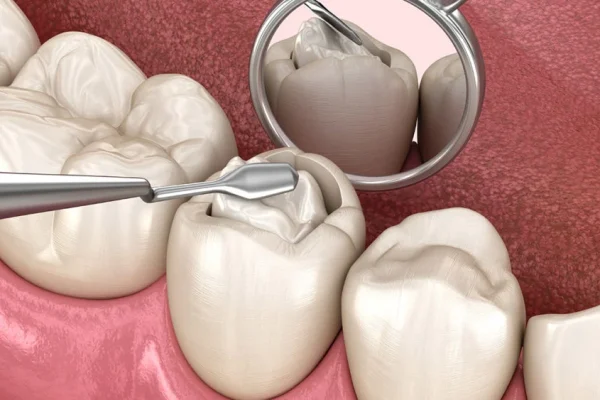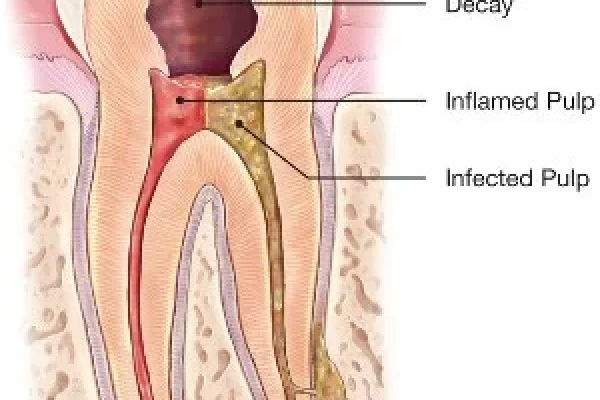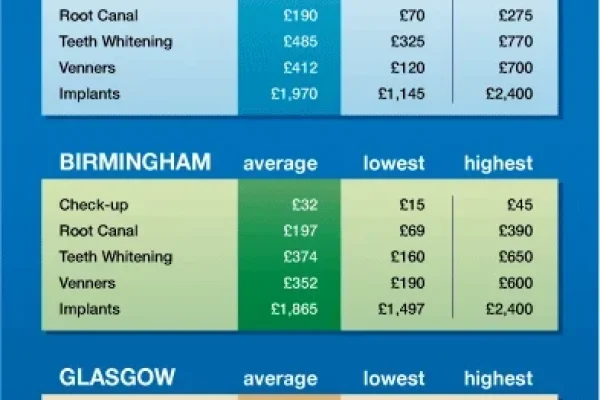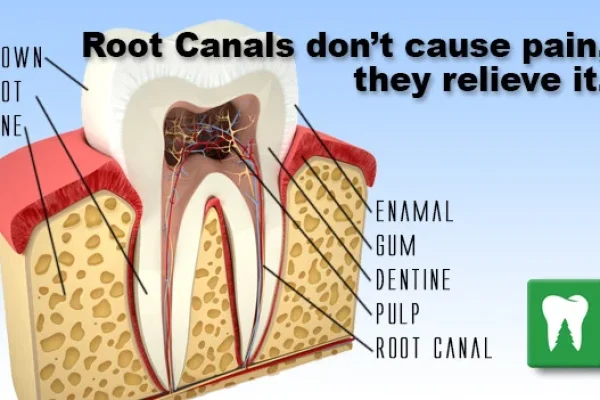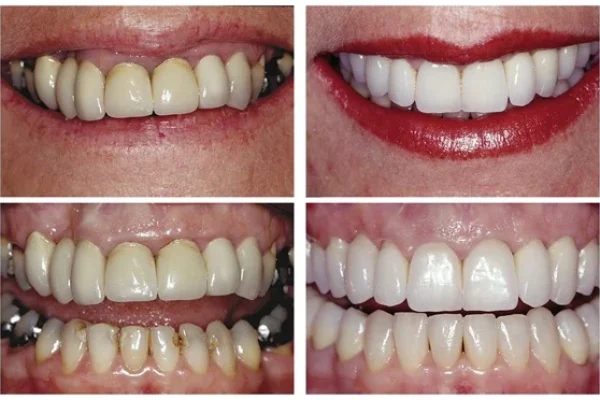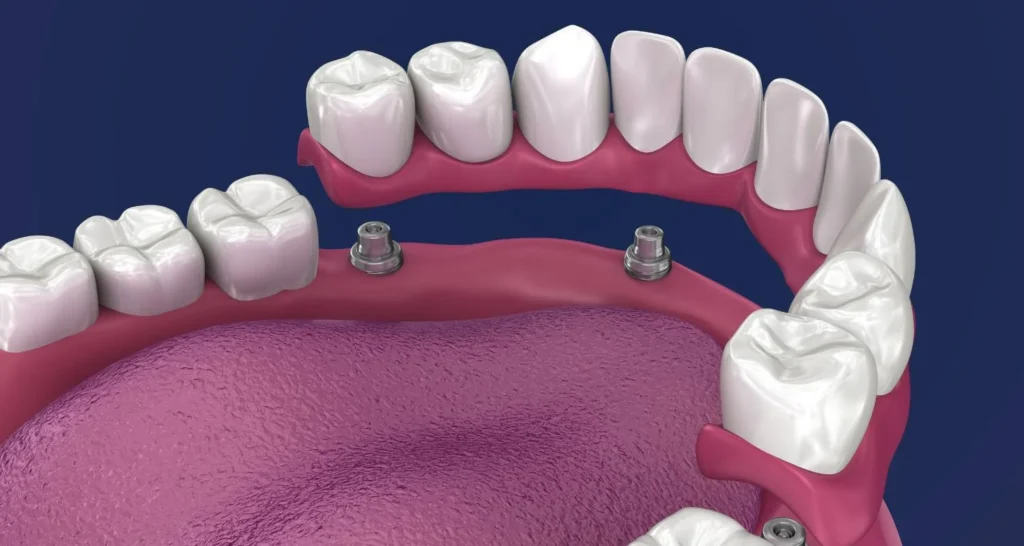
Table of Contents
ToggleKey Takeaways
- Dental implants on the NHS are not generally available and are reserved for very specific, limited clinical circumstances.
- Eligibility hinges on strict medical criteria such as severe facial trauma, congenital conditions affecting tooth development, or as part of reconstruction after mouth cancer treatment, not for cosmetic reasons or routine tooth loss.
- If you qualify, the cost to you as a patient will typically fall under the prevailing Band 3 NHS dental charge (e.g., £319.10 in England as of early 2024), which is substantially lower than private treatment fees.
- The limited availability is primarily due to NHS budget constraints and the need to prioritise funding for a vast range of essential health services over more costly, specialised treatments.
- Standard NHS options for tooth replacement, if implants aren’t available, typically include dentures and conventional dental bridges.
Are Dental Implants on the NHS Generally Available for UK Patients?
No, dental implants on the NHS are not generally available for UK patients and are only offered in very specific, limited clinical circumstances, a reality that often comes as a surprise to those hoping for this advanced solution through public healthcare. The common queries – “Are dental implants available via the NHS?” or “dental implants and NHS: are they available?” – unfortunately, lead to a somewhat disheartening, though crucial, answer for the majority. The NHS, in its mission to provide comprehensive healthcare to the nation, must prioritise resources. Consequently, treatments like “teeth implants nhs” or an “nhs tooth implant” are not part of routine dental care. The official stance is clear: “only in rare circumstances do the NHS provide dental implants.” This isn’t a reflection of the efficacy of implants, which are widely recognised as a superior long-term solution for tooth loss, but rather a pragmatic decision based on cost, complexity, and the availability of alternative, more accessible treatments for common dental issues. Think of NHS dental care as a tiered system; while essential repairs, preventative care, and more conventional restorations like dentures or bridges are widely accessible, highly specialised and costly procedures like “nhs implant teeth” are reserved for cases where the clinical need is exceptional and demonstrably significant. Services like the “Dental implants service – Overview | Guy’s and St Thomas’ NHS Foundation Trust” exist, but access is gated by these strict criteria, not open to general patient request. The primary reason for this limited availability, which we’ll explore further, boils down to resource allocation and the NHS’s focus on addressing the most pressing and widespread health needs within its budgetary constraints.
Are Dental Implants on the NHS Generally Available for Albanian Patients?
Dental implants are generally not available through the NHS for most patients, including those from Albania, unless specific and exceptional clinical criteria are met.
NHS Dental Implant Eligibility: Strict and Limited
The NHS provides dental implants only in rare cases where there is a clear medical need. Eligibility is not based on nationality but on clinical necessity. Common qualifying scenarios include:
Reconstructive surgery following head and neck cancer
Severe trauma resulting in tooth loss
Congenital conditions like hypodontia (missing multiple teeth)
Severe denture intolerance after all other options have failed
Aggressive periodontitis that has been stabilized
These treatments are typically provided in hospital settings by specialist teams, not in general dental practices .
Access for Albanian Patients
If you’re an Albanian citizen residing in the UK, you may be eligible for NHS dental care, including implants, provided you meet the clinical criteria. However, visiting the UK solely for dental treatment does not entitle you to NHS-funded care.
To be considered for NHS dental implants:
Register with a UK NHS dentist and undergo an initial assessment.
If deemed potentially eligible, your dentist can refer you to a hospital-based specialist for further evaluation.
It’s important to note that waiting times can be lengthy, and approval is not guaranteed.
Private Alternatives and Dental Tourism
For those who do not meet NHS criteria or prefer quicker treatment, private dental care is an option. However, costs can be substantial:
Single implant: £2,000–£3,500
Full-arch restoration: £15,000–£30,000
Given these costs, many patients consider dental tourism. Countries like Albania offer high-quality dental implant services at significantly lower prices, often 60–70% less than UK rates. Clinics in Albania are equipped with modern technology and staffed by experienced professionals, making it a viable alternative for comprehensive dental care .
✅ Summary
NHS dental implants are rarely available and reserved for specific medical cases.
Albanian residents in the UK may qualify if they meet strict clinical criteria.
Private treatment is widely available but can be expensive.
Dental tourism, particularly to Albania, offers a cost-effective and high-quality alternative.
Who Qualifies for Dental Implants on the NHS and What Are The Criteria?
Qualification for dental implants on the NHS hinges on meeting strict, clinically defined criteria, typically involving severe medical needs such as recovery from significant facial trauma, congenital conditions affecting tooth development, or as part of reconstruction after mouth cancer treatment, rather than for cosmetic reasons or routine tooth loss. If you’re asking, “Do I qualify for dental implants on the NHS?” or “Who can get dental implants paid by NHS?”, the answer lies in these non-negotiable clinical prerequisites. “The NHS-funded criteria” are designed to ensure that this resource-intensive treatment is directed towards patients for whom implants are not just desirable but essential for restoring function, preventing further significant health complications, or addressing severe disfigurement that profoundly impacts quality of life. The “Dental Implants NHS Criteria” are, therefore, purposefully stringent. They explicitly exclude cosmetic enhancements; if your primary motivation is aesthetic improvement for otherwise manageable tooth loss, the NHS route is unlikely to be an option. The focus is on restorative necessity, often highlighted in contexts such as “Dental implants in restorative dentistry | CUH,” where implants form a critical part of a larger, medically indicated rehabilitation plan. Securing “implants on nhs dentist” care usually means being referred by your general dentist to a specialist unit within a hospital. These hospital departments are equipped to handle complex cases and make the final determination on eligibility based on a thorough assessment against the national or regional guidelines. It’s not a pathway for filling a simple gap left by an extracted molar unless that gap is part of a much larger, clinically critical picture.
Can I Get Dental Implants on the NHS if I Meet Certain Conditions?
Yes, you can potentially get dental implants on the NHS if you meet specific, often severe, medical or trauma-related conditions that demonstrably impact your oral health and function significantly, such as having lost teeth due to an accident, requiring reconstruction after surgery for oral cancer, or being born with congenital anomalies like hypodontia (developmentally missing multiple teeth). These aren’t minor ailments; we’re talking about situations where tooth loss is a direct consequence of a significant health event or developmental issue, and implants are deemed the most clinically appropriate, or sometimes the only viable, long-term solution. The assessment process for determining if “can i get teeth implants on nhs” is a ‘yes’ is rigorous. It typically involves a referral from your general dental practitioner or a medical specialist to a hospital-based consultant in restorative dentistry, oral and maxillofacial surgery, or a similar specialism. This consultant will then conduct a thorough examination, review your medical history, and assess whether your specific circumstances align with the established NHS criteria for implant provision. Questions like “Can I Get Dental Implants On The NHS? – Bespoke Smile” and similar patient queries always circle back to these fundamental conditions. For instance, a patient who has undergone surgery to remove a cancerous tumour in the jaw, resulting in tooth and bone loss, might be considered. Similarly, someone who has suffered extensive dental trauma from a serious accident, leading to multiple avulsed (knocked-out) teeth and damage to the supporting bone, could be eligible. The key is that the need is not elective but a direct result of a defined medical or traumatic event, and other forms of restoration are deemed inadequate or inappropriate.
What is the Process for Getting Dental Implants Through The NHS?
The process for potentially getting dental implants through the NHS typically begins with a consultation with your general NHS dentist, who, if they believe you might meet the stringent criteria, will refer you to a specialist consultant in a hospital setting for a comprehensive assessment and decision. This isn’t a treatment you can usually self-refer for or directly request from a high-street NHS practice offering routine care. Your journey, as outlined in guides like “How to Get Dental Implants Through The NHS | Maida Smiles (W. London),” starts with your primary dental care provider. They will perform an initial assessment. If your tooth loss or dental condition appears to align with the specific circumstances covered by NHS funding for implants (such as severe trauma, congenital absence of teeth, or post-oral cancer reconstruction), they will initiate a referral. This referral is typically directed to a consultant in restorative dentistry, oral and maxillofacial surgery, or a specialised dental hospital. The hospital-based team will then conduct a much more detailed evaluation. This will likely involve advanced imaging (like CT scans), a thorough review of your dental and medical history, and an in-depth discussion about your needs and expectations. They will assess not only if your condition meets the criteria but also if you are a suitable candidate for implant surgery from a general health and oral hygiene perspective. Information from entities like “NHS funded implants – Newcastle Hospitals NHS Foundation Trust” often underscores that these are specialised services, not universally accessible. If the consultant agrees that NHS-funded implants are clinically indicated and you meet all eligibility requirements, you will be placed on a waiting list for treatment. The length of this wait can vary significantly depending on the hospital and region.
Are There Additional Factors That Enhance Eligibility for NHS Dental Implants?
Beyond the primary severe medical or traumatic reasons, additional factors that might enhance eligibility for NHS dental implants can include demonstrating a severe functional impairment that cannot be resolved by other means, or in some cases, profound psychological distress directly attributable to tooth loss where implants are the only viable solution to restore quality of life, though these are assessed meticulously on a case-by-case basis. While the core criteria often revolve around congenital defects (like hypodontia), facial trauma, or post-cancer reconstruction, the impact of these conditions on an individual’s daily life plays a significant role in the assessment. For example, if tooth loss leads to such severe difficulty in eating and speaking that conventional dentures or bridges are proven ineffective or intolerable, this demonstrable functional deficit strengthens the case. The inability to maintain adequate nutrition due to compromised chewing ability can be a compelling factor. Furthermore, while the NHS is cautious about funding treatments primarily for psychological reasons, there’s an increasing recognition that severe aesthetic compromise resulting from medically-indicated tooth loss can lead to significant psychological distress, social withdrawal, and a drastically reduced quality of life. If it can be shown that this distress is profound, directly linked to the tooth loss, and that implants are the only restorative option that could alleviate this (and other solutions have failed or are unsuitable), it may be considered as a contributing factor by the assessing clinicians. However, it’s crucial to understand this is not a simple pathway; the psychological impact usually needs to be severe and directly tied to a primary qualifying medical condition. It’s less about feeling self-conscious about a gap and more about debilitating psychological consequences of, say, major facial reconstruction.
Why Might I Be Declined for Dental Implants on the NHS Even With Tooth Loss?
You might be declined for dental implants on the NHS even with tooth loss if your general oral health is poor, you have unsuitable bone structure and bone augmentation isn’t deemed appropriate or offered by the NHS in your case, if alternative and less complex treatments like dentures or bridges are considered clinically adequate for your situation, or, most commonly, if your tooth loss simply doesn’t meet the specific and limited criteria for NHS funding. The “More reasons why you may be declined for dental implants on the NHS” are multifaceted. Firstly, excellent oral hygiene and healthy gums are prerequisites for successful implant treatment. If you have active gum disease or a history of poor dental care, you’re likely to be considered a poor candidate until these issues are resolved and maintained, as the risk of implant failure would be too high. Secondly, dental implants require sufficient quality and quantity of jawbone to fuse with. If you’ve experienced significant bone loss (which can happen after teeth are lost or due to other conditions) and require extensive bone grafting, the NHS may not cover these ancillary procedures, or they may deem the overall treatment too complex or unpredictable within their funding model. Thirdly, the NHS operates on a principle of providing clinically appropriate and cost-effective care. If conventional dentures or a dental bridge can adequately restore function and aesthetics, even if implants might be a “better” or more comfortable solution in an ideal world, the less invasive and less costly option will likely be recommended under NHS provision. Lastly, and most significantly, your specific reason for tooth loss must align with the tightly defined NHS criteria – typically trauma, congenital issues, or post-cancer reconstruction. Missing a tooth due to decay or routine extraction, however inconvenient, generally doesn’t qualify.
Can You Get ‘Screw-In Teeth’ on the NHS? Understanding the Terminology
Yes, you can potentially get ‘screw-in teeth,’ which is a colloquial and quite descriptive term for dental implants, on the NHS, but this is subject to the exact same stringent clinical eligibility criteria as any other NHS-funded dental implant treatment. The term “screw-in teeth” understandably resonates with patients as it vividly pictures the implant fixture being placed into the jawbone, much like a screw, to provide a stable base for an artificial tooth. While dentists and official NHS documentation will use the term “dental implants,” if you ask your dentist “can you get screw-in teeth on NHS?”, they will understand you are referring to implant-retained restorations. The crucial point is that the terminology used doesn’t change the underlying rules of access. Whether you call them dental implants, tooth implants, osseointegrated fixtures, or ‘screw-in teeth,’ the pathway to obtaining them through the National Health Service remains highly selective and based on profound clinical need. These needs, as consistently outlined, usually involve scenarios such as patients who have lost teeth due to severe facial trauma (e.g., a serious accident), those born with developmental conditions like hypodontia (missing multiple teeth congenitally), or individuals requiring significant oral reconstruction following surgery for head and neck cancer. The NHS does not provide ‘screw-in teeth’ for cosmetic reasons or to replace teeth lost through routine decay or gum disease if conventional alternatives like dentures or bridges are considered clinically appropriate. So, while the term is different, the fundamental principles of NHS provision – prioritising cases of exceptional medical necessity – remain firmly in place.
Are NHS Dental Implants Available in Scotland Under Different Criteria?
While the core principles of clinical need for NHS dental implants are broadly similar across the UK, specific access routes, funding mechanisms, and the precise interpretation or emphasis on particular criteria in Scotland can differ slightly from those in England, Wales, or Northern Ireland; therefore, patients should consult NHS Scotland guidelines or their Scottish dentist for the most accurate local information, although widespread availability for cosmetic reasons remains just as unlikely. The query “Can You Get Dental Implants On The NHS In Scotland” is a valid one, as healthcare is a devolved matter, meaning NHS Scotland operates with a degree of autonomy. Generally, the overarching philosophy aligns: NHS resources are prioritised for those with the greatest clinical need. However, the specific pathways, referral processes, and potentially the weighting of certain conditions might have local variations. For instance, discussions around “DENTAL IMPLANTS SCOTLAND NHS COSMETIC TREATMENT” would almost certainly conclude that, like the rest of the UK, purely cosmetic implant treatment is not funded by the NHS. The focus remains on restorative cases arising from trauma, congenital abnormalities, or post-cancer reconstruction. Patients in Scotland experiencing such issues would typically be referred by their General Dental Practitioner (GDP) to a specialist service within a hospital or a public dental service with advanced capabilities. It’s always best practice for individuals residing in Scotland to have a direct conversation with their own dentist who can advise based on the most current NHS Scotland policies and make appropriate referrals if the clinical situation warrants consideration for implant treatment. They can provide insight into local waiting lists and any specific nuances in the assessment criteria applicable within their health board area.
If I Qualify, How Much Are Dental Implants on the NHS in the UK?
If you exceptionally qualify for dental implants on the NHS in the UK, the cost to you as a patient will typically fall under the prevailing Band 3 NHS dental charge for England (or its equivalent in Scotland, Wales, and Northern Ireland), which is a set fee covering the entire course of complex treatment, rather than the much higher private cost of the implants themselves. This is a crucial point for those navigating the often-confusing landscape of “nhs dental implants cost uk” and its many variations like “dental implant cost uk nhs” or “tooth implant cost uk nhs.” Should your case meet the stringent clinical criteria and NHS funding be approved, you won’t be paying per implant or for the surgical time in the way you would in a private setting. Instead, the “nhs cost of dental implants” is absorbed into this single, capped charge. As of the current fee structure, Band 3 in England covers treatments such as crowns, dentures, and bridges, and if implants are approved, they too fall under this umbrella. This “nhs implant cost” or “nhs dental implant price” is therefore substantially subsidised compared to private fees, which can run into thousands of pounds per tooth. So, when patients ask “how much are dental implants on the nhs,” “how much is dental implant on nhs,” or “how much is an implant tooth on the nhs,” the answer, contingent on qualification, is the standard charge for the highest tier of NHS dental treatment. It’s vital to remember, however, that qualification is the significant hurdle; the cost aspect only becomes relevant once eligibility is confirmed.
What Are the Typical NHS Dental Implant Charges I Might Expect?
The typical NHS dental implant charge you might expect, if deemed eligible for this treatment, is the current Band 3 NHS dental treatment charge in England (or the equivalent highest band charge in other UK nations like Scotland, Wales, and Northern Ireland); as of early 2024, the Band 3 charge in England is £319.10, a figure that is subject to annual review and covers the full course of approved complex dental treatment, including implants. It’s critical to understand that this single payment of “nhs dental implant charges” is for the entirety of the treatment episode related to the implants – from the surgical placement to the fitting of the final crown or bridge. This contrasts sharply with the “cost of dental implants nhs” if you were to misunderstand and think this was a per-implant fee; it’s not. Private implant treatment can easily cost £2,000 to £4,000 per tooth, sometimes more, depending on the complexity and materials used. Therefore, if an individual is one of the rare cases approved for NHS implants, the financial outlay is significantly reduced to this standard NHS band charge. It’s important to always verify the current Band 3 charge on the official NHS website or with your dental provider, as these fees can be updated. The principle remains: you pay one set fee for the entire course of complex treatment, making it a very cost-effective option for those who meet the strict clinical necessity criteria. This fixed charge ensures predictability for patients who have already navigated the challenging process of proving their eligibility for such advanced care under the NHS.
Does the NHS Cover Full Mouth Dental Implants Cost?
The NHS only covers the cost of full mouth dental implants in extremely rare and exceptional circumstances, typically involving severe congenital conditions affecting the entire dentition (such as anodontia or severe hypodontia), extensive facial trauma resulting in the loss of most or all teeth, or as part of major reconstructive surgery after treatment for widespread oral cancer where no other restorative option is viable; this is absolutely not a routinely available treatment pathway. The query “full mouth dental implants cost nhs” taps into a scenario that represents the pinnacle of complex dental rehabilitation. While the NHS provides remarkable care in many areas, funding for such extensive implant work is reserved for a very small subset of patients with the most profound and debilitating oral conditions. For the vast majority of people seeking full mouth restoration, even if they have lost all their teeth due to more common reasons like advanced gum disease or widespread decay over time, the NHS is highly unlikely to fund full mouth implants. Instead, the standard NHS provision in such cases would typically be full dentures. Managing expectations is crucial here: the threshold for NHS funding for full mouth implants is exceptionally high, requiring a compelling medical justification that goes far beyond simply being edentulous (toothless). The assessment would involve multiple specialists and a thorough review to confirm that implants are the only clinically appropriate solution and that the patient’s overall health and oral condition are suitable for such extensive surgery and long-term maintenance. Therefore, while theoretically possible, it remains a highly specialised and seldom-approved intervention within the NHS framework.
How Do NHS Costs for Dental Implants Compare to Private Treatment?
NHS costs for dental implants, when applicable due to meeting the strict eligibility criteria, are vastly lower than private treatment, as eligible patients pay only the standard NHS charge for complex dental work (e.g., Band 3 in England, which was £319.10 as of early 2024), whereas private implants can cost thousands of pounds per tooth, often ranging from £2,000 to £4,000 or even more depending on the specifics. This staggering difference underscores the immense financial benefit if one qualifies for NHS provision. The “cost of dental implants on nhs” for an approved patient is not itemised per implant, per surgical procedure, or per component; it’s a single, capped fee for the entire course of treatment. Conversely, private “dental implants cost nhs” is a misnomer – private costs are entirely separate and reflect the full expense of materials, surgeon’s fees, clinic overheads, and any necessary preparatory work like bone grafts or sinus lifts, which can further escalate the price. The focus of “Tooth implant costs in the UK – NHS” related information is almost always on this subsidised, fixed charge applicable if you are one of the few who qualify. For the average person considering implants for, say, one or two missing teeth due to common causes, the NHS route is generally not an option, and they would be looking at private fees. The NHS subsidised cost, therefore, applies to a very specific and limited patient group who have already overcome the significant hurdle of clinical eligibility. This makes the financial aspect a secondary, though highly favourable, consequence of meeting profound medical need.
Why Aren’t NHS Dental Implants Widely Available for Everyone?
NHS dental implants are not widely available for everyone primarily due to significant financial constraints and resource allocation decisions within the National Health Service, which must prioritise funding for a vast range of essential health services, often deeming implants a lower priority compared to acute medical conditions or more common dental treatments that serve a broader population with immediate needs. The direct answers to “Why You Can’t Get Dental Implants on the NHS” and “Why Aren’T Implants Widely Available on the NHS?” revolve around these core economic and strategic realities. The NHS operates with a finite budget, and every pound spent on one treatment is a pound not available for another. Dental implants, while an excellent long-term solution, are relatively expensive, involve specialist surgical skills, and require significant chair-side time and laboratory costs. Given these factors, the NHS makes pragmatic choices to allocate funds towards services that provide the greatest health benefit to the largest number of people, or address the most urgent life-threatening conditions. This often means prioritising treatments for acute illnesses, emergency care, cancer treatments, and more routine dental procedures like fillings, extractions, and the provision of dentures or bridges, which can address tooth loss for a wider segment of the population at a lower per-patient cost. Dental implants are often viewed as a more advanced, specialist procedure, and while their benefits are acknowledged, their widespread provision would place an unsustainable burden on NHS finances without a significant increase in overall health funding redirected specifically to this area. Hence, their availability is restricted to cases of exceptional clinical necessity where alternative treatments are deemed insufficient.
Are Dental Implants Generally Covered by Standard NHS Dental Services?
No, dental implants are not generally covered by standard NHS dental services; instead, they fall under specialized hospital-based services or specific contractual arrangements for complex cases, meaning they are not typically provided by high-street NHS general dental practitioners as a routine treatment option available on patient request. When patients hear “dental implants nhs” or “implants on nhs,” it’s crucial to understand this distinction. Your regular visit to an NHS dentist for a check-up, filling, or even for dentures or bridges, operates under a different framework than the provision of dental implants. These standard services are widely accessible and form the backbone of NHS dental care. However, dental implants involve surgical procedures, advanced treatment planning, and often require a multidisciplinary team, placing them firmly in the realm of specialised care. This is why, if a patient might qualify, their general dentist doesn’t usually perform the implant surgery themselves under NHS terms. Instead, they refer the patient to a hospital’s restorative dentistry or oral and maxillofacial surgery department, or to a specific dental practice that holds a special contract with the NHS to provide such advanced treatments. The general understanding of “teeth on nhs” usually encompasses dentures, bridges, crowns, and routine care. Dental implants are an exception, reserved for those specific, limited clinical situations where their provision is deemed a medical necessity by consultants in these specialised settings, moving beyond the scope of what is considered standard NHS dental provision.
Under What Rare Circumstances Does the NHS Actually Provide Dental Implants?
The NHS actually provides dental implants only under rare and specific circumstances, predominantly for patients who have experienced significant facial trauma (e.g., from a serious accident leading to tooth and bone loss), were born with congenital conditions leading to missing multiple teeth (such as severe hypodontia or ectodermal dysplasia), or require major reconstructive surgery after treatment for oral cancer where teeth and supporting jawbone have been removed. It is in these exceptional scenarios that an “nhs dental implant” or “tooth implant nhs” might be approved as part of a comprehensive treatment plan aimed at restoring not just appearance but crucial oral function and overall quality of life. The guiding principle, as often stated, is that “Only in rare circumstances do the NHS provide dental implants.” For instance, a young adult who is congenitally missing several front teeth, making conventional bridgework difficult or damaging to adjacent healthy teeth, might be considered. Similarly, a patient who has undergone a mandibulectomy (removal of part of the jaw) due to cancer, leaving them unable to wear a conventional denture or eat properly, could be a candidate for implant-supported prosthetics. The decision is always made on a case-by-case basis by specialist consultants, following a thorough assessment against established national or regional NHS guidelines, and always prioritising functional rehabilitation and significant medical need over purely aesthetic concerns or routine tooth replacement. These are not everyday dental problems but complex clinical challenges where implants offer a unique solution.
Is It Possible to Get Free Dental Implants on the NHS or Through Grants?
Yes, it is theoretically possible to get “free” dental implants on the NHS, but this requires a dual qualification: first, meeting the exceptionally strict clinical criteria for NHS-funded implant treatment itself, and second, also qualifying for full exemption from standard NHS dental charges due to specific circumstances like low income or certain benefits; separate government grants specifically for dental implants are generally not available. The hopeful questions of “how to get free dental implants on nhs” and the search for “free dental implants nhs” need this crucial clarification. The “free” aspect refers to the patient charge, not to the NHS providing the treatment without cost to its own budget. If an individual is assessed and approved for NHS-funded implants (which, as we’ve established, is rare and based on severe clinical need like trauma, congenital issues, or post-cancer reconstruction), they would normally be liable for the Band 3 NHS dental charge. However, if that same individual also meets the criteria for exemption from NHS dental charges (e.g., they are under 18, pregnant, have recently had a baby, or are in receipt of certain benefits like Income Support, income-based Jobseeker’s Allowance, or Universal Credit with no earnings), then the Band 3 charge would be waived. This is how “free” NHS implants are achieved. Regarding the query “Is there a government grant for dental implants UK?”, the answer is generally no. There isn’t a separate pot of government money or a specific grant scheme that individuals can apply to for funding dental implants outside of the established NHS pathways or charitable avenues.
How Can One Potentially Access Free Dental Implants in the UK via NHS-Funded Criteria?
One can potentially access free dental implants in the UK via NHS-funded criteria by first being assessed and approved for the implant treatment itself based on severe clinical need (such as post-trauma reconstruction, congenital absence of multiple teeth, or rehabilitation after oral cancer surgery), and then, additionally, meeting the national criteria for exemption from NHS dental patient charges, such as being in receipt of certain income-related benefits or holding a valid exemption certificate (like an HC2 certificate for full help with health costs). This two-step process is crucial. The “NHS-Funded Criteria” for the implants themselves are the primary hurdle; these are stringent and focus on exceptional medical necessity, not routine tooth replacement. If, and only if, a patient passes this clinical assessment and is approved for NHS implants, the question of patient charges arises. At this point, if the patient also qualifies for exemption from NHS dental charges – for example, if they are under 18 (or under 19 and in full-time education), pregnant, have had a baby in the last 12 months, or are receiving benefits like Income Support, income-related Employment and Support Allowance, income-based Jobseeker’s Allowance, Pension Credit Guarantee Credit, or Universal Credit (and meet specific earnings criteria) – then the standard Band 3 NHS dental charge for the implants would be waived. This effectively makes the treatment “free” at the point of service for that eligible individual. It’s not about finding a loophole but about a confluence of meeting both strict clinical criteria and separate financial/social criteria for charge exemption.
Are Specific Government Grants Available for Dental Implants in the UK Outside of NHS Routes?
No, there are generally no specific, widely available government grants designated purely for dental implants in the UK for the general public outside of the established NHS funding pathways, which themselves are reserved for exceptional clinical cases; most external financial assistance for dental work, if available, tends to come from charitable organizations under very specific circumstances, through insurance policies (if applicable), or via personal finance options like loans or payment plans offered by private clinics. The question “Is there a government grant for dental implants UK?” often arises from a hope for alternative funding sources when NHS criteria aren’t met. Unfortunately, the government does not operate a separate grant scheme that individuals can apply to for covering the costs of private dental implant treatment. Funding for medically necessary implants is channelled through the NHS, subject to its strict eligibility criteria. For those who do not qualify for NHS treatment, the financial responsibility typically falls to the individual. Some dental charities may occasionally offer assistance, but this is usually for very specific cohorts (e.g., victims of domestic violence, certain disability groups) and funds are often limited and highly competitive. Workplace or private health insurance policies might offer some dental cover, but implant treatment is frequently excluded or capped at a low level. Therefore, for most people seeking implants who don’t meet NHS criteria, the route involves exploring private treatment options and the associated costs, which may include in-house financing plans offered by dental practices or personal bank loans. The idea of a readily accessible government grant specifically for this purpose is, regrettably, a misconception.
What Are the NHS Options for Tooth Replacement if Implants Aren’t Available?
If dental implants aren’t available to you on the NHS due to not meeting the strict eligibility criteria, the primary options for “tooth replacement nhs” typically offered are dentures (false teeth – either full or partial) and conventional dental bridges, both of which are more routinely provided and fall under standard NHS dental charge bands, making them significantly more accessible for the general population. While implants are often considered the gold standard by many, the NHS provides these well-established alternatives to address tooth loss effectively for a large number of patients. Dentures are removable appliances that can replace a few missing teeth (partial dentures) or an entire arch of teeth (full dentures). Bridges, on the other hand, are fixed restorations that use adjacent healthy teeth as anchors to support an artificial tooth in the gap. These options are more routinely offered because they are generally less invasive, involve lower material and laboratory costs, and can be provided by general dental practitioners in a high-street setting, without necessarily requiring referral to specialist hospital services. The cost implications for dentures and bridges under the NHS fall into the standard dental charge bands (typically Band 3 in England for these more complex restorations), making them a predictable and relatively affordable solution for patients who need to replace missing teeth but do not qualify for the very limited provision of “nhs implants” or an “nhs implant tooth.” These alternatives have served patients well for many decades and continue to be a mainstay of NHS restorative dentistry.
What is General Tooth Replacement on the NHS Typically Like?
General “tooth replacement nhs” typically involves an assessment by your NHS dentist to determine the most appropriate and clinically indicated solution for your missing teeth, which commonly includes the provision of either removable dentures (partial or full) or fixed dental bridges, with the entire treatment process and the materials used conforming to established NHS standards and cost structures. When you present to your NHS dentist with missing teeth, they will first conduct a thorough examination of your oral health, including the condition of any remaining teeth, your gums, and your jawbone. They will discuss your needs, preferences (within the scope of NHS provision), and the functional and aesthetic implications of your tooth loss. Based on this assessment, they will explain the viable NHS options. If dentures are chosen, impressions of your mouth will be taken to create custom-fitted acrylic (or sometimes metal-based) false teeth. This usually involves several appointments for try-ins and adjustments to ensure a comfortable and functional fit. If a bridge is deemed suitable and you have healthy adjacent teeth to support it, these teeth will be prepared (slightly reduced in size), impressions taken, and a laboratory-made bridge cemented into place. Both procedures fall under NHS dental charge bands (usually Band 3 in England for more complex restorations like these). The expected outcomes are the restoration of chewing ability, improvement in speech where affected by tooth loss, and an aesthetic enhancement. While these solutions may not offer the same feel or permanence as implants, they are effective, widely available, and significantly more affordable routes for tooth replacement within the NHS.
What About Tooth Transplants on the NHS? Is This a Viable Alternative?
While “tooth transplant nhs” (autotransplantation of teeth) is a procedure that is occasionally performed within the National Health Service, it is a highly specialised and relatively rare surgical intervention, generally considered for specific and limited clinical cases, such as for young patients with developing dentitions who have lost a tooth due to trauma or have an unerupted tooth (like a wisdom tooth) that can be moved to an empty socket; it is not a common or widely viable alternative to dental implants for most instances of adult tooth loss. A tooth transplant involves surgically extracting one of a patient’s own healthy teeth (often a non-functional wisdom tooth or a premolar if orthodontic space is being created) and immediately transplanting it into the socket of a recently lost or extracted tooth. The success of this procedure heavily relies on the viability of the periodontal ligament cells on the root of the transplanted tooth, the age of the patient (younger patients with open root apices have better outcomes), and the condition of the recipient site. Unlike dental implants, which are artificial fixtures, a tooth transplant uses a natural tooth. However, its application is narrow. It’s not a solution for patients who are already missing teeth for some time and have healed sockets, nor is it typically used for widespread tooth loss. Furthermore, the long-term success rates can be more variable than dental implants, and it requires very specific clinical circumstances and surgical expertise. So, while an intriguing option within restorative dentistry, it serves a niche patient group and isn’t a mainstream NHS alternative to either implants or more common restorations like dentures and bridges for the general adult population.
Can I Find a Regular NHS Dentist Who Offers Implants Directly?
No, you generally cannot find a regular high-street NHS dentist who offers NHS-funded dental implants directly as part of their standard NHS contract; instead, if a patient potentially qualifies for implants under the strict NHS criteria (due to severe trauma, congenital issues, or post-cancer reconstruction), their general NHS dentist would initiate a referral to a specialised hospital-based service or, in some areas, to a specific dental practice that holds an advanced contract with the NHS for providing such complex treatments. The phrase “implants on nhs dentist” can be misleading if it suggests that any NHS dentist can provide this service on demand under NHS terms. Standard NHS dental contracts for general dental practitioners (GDPs) cover a range of routine and some complex restorative care like fillings, crowns, bridges, and dentures. However, dental implantology is a distinct, highly specialised field involving surgical procedures and often requiring a multidisciplinary approach. Therefore, the provision of NHS-funded implants is typically ring-fenced and managed through secondary care (hospitals) or specially commissioned primary care services with the requisite expertise and facilities. Your local NHS dentist plays a crucial role in initial assessment and referral if they believe you might meet the exceptional criteria, but they are not usually the ones who will place the implants under NHS funding. This system ensures that such resource-intensive and specialised treatments are delivered by teams with specific training and experience in managing these complex cases, and that funding is directed appropriately according to NHS England’s (or devolved nations’) guidelines.
Frequently Asked Questions About Dental Implants on the NHS
This section provides concise answers to the most common and crucial questions patients have regarding dental implants and the National Health Service, helping you quickly understand the key aspects of availability, eligibility, cost, and the reasons behind NHS policies, ensuring you’re well-informed about this complex topic. Many people hope that these advanced tooth replacements are readily available, but the reality is nuanced, governed by strict clinical need and the NHS’s resource allocation strategies. Understanding these fundamentals from the outset can save considerable time and manage expectations effectively. We aim to distil the core information presented throughout this guide into easily digestible responses, addressing the pivotal concerns that arise when considering dental implants within the NHS framework. Whether you’re wondering about your own potential eligibility, the costs involved if you do qualify, or simply why this treatment isn’t a standard offering, these FAQs will reinforce the key takeaways. This will empower you to have more informed discussions with your dental professionals and make sound decisions regarding your oral health journey, fully aware of the specific and limited circumstances under which the NHS provides dental implant treatment. The goal is clarity and a realistic perspective on what is, for most, a treatment pathway reserved for exceptional cases of medical necessity rather than routine dental restoration.
Are Dental Implants on the NHS Generally Available for UK Patients?
No, dental implants on the NHS are not generally available for UK patients as a routine procedure; their provision is strictly limited to exceptional clinical circumstances where there’s a profound medical or functional need that cannot be addressed by more conventional dental treatments like dentures or bridges. This means that for the average person missing one or more teeth due to common causes such as decay, gum disease, or simple extraction, the NHS route for implants is typically not an option. The National Health Service prioritises its resources towards a vast range of healthcare needs, and within dentistry, this often means focusing on preventative care, essential repairs, and more widely applicable restorative solutions. While implants are recognised as an excellent treatment, their higher cost and specialist nature mean they are reserved for cases like severe facial trauma recovery, patients with congenital conditions leading to multiple missing teeth (e.g., hypodontia), or as part of oral reconstruction following cancer treatment. In these specific scenarios, implants may be deemed a clinical necessity for restoring significant function or addressing severe disfigurement. For all other situations, patients seeking implants would usually need to consider private treatment options. The NHS stance reflects a balance between providing comprehensive care and managing a finite budget, leading to strict rationing of more expensive, specialised procedures.
Who Qualifies for Dental Implants on the NHS and What Are The Criteria?
Individuals who qualify for dental implants on the NHS are typically those with severe clinical needs, such as patients recovering from significant facial trauma (for example, after a serious accident), those with congenital conditions causing multiple missing teeth (like severe hypodontia or ectodermal dysplasia), or individuals requiring oral reconstruction after surgery for head and neck cancer; eligibility is determined by stringent NHS-funded criteria focused on demonstrable medical necessity rather than cosmetic preference or routine tooth loss. The “Dental Implants NHS Criteria” are intentionally narrow to ensure this advanced and costly treatment is provided to those who need it most from a medical and functional standpoint. An assessment is usually carried out by a hospital-based consultant (e.g., in Restorative Dentistry or Oral & Maxillofacial Surgery) following a referral from a general dentist or another medical specialist. They will evaluate if the patient’s condition aligns with national or local NHS guidelines for implant provision. Factors considered include the cause of tooth loss, the number and location of missing teeth, the impact on oral function (like eating and speaking), the unsuitability or failure of conventional alternatives (dentures/bridges), and the patient’s overall medical and dental health to ensure they are a good candidate for surgery. Simply wanting implants for a better appearance or to avoid dentures, if these are otherwise viable, will not meet the threshold for NHS funding.
If I Qualify, How Much Are Dental Implants on the NHS in the UK?
If you are one of the rare individuals who qualify for dental implants on the NHS in the UK, the cost to you will be the standard NHS dental charge for complex treatments (currently Band 3 in England, which was £319.10 as of early 2024, though this is subject to annual review; similar charge bands apply in Scotland, Wales, and Northern Ireland, though the exact amounts may differ), which is a fixed fee significantly lower than the thousands of pounds typically charged for private implant procedures. This single Band 3 payment covers the entire course of NHS-approved treatment, from the surgical placement of the implant(s) to the fitting of the final crown, bridge, or denture supported by them. It’s crucial to understand that you are not paying for the implants themselves on an itemised basis as you would in a private clinic, where each implant, abutment, crown, and surgical appointment would be individually costed, often leading to bills of several thousand pounds per tooth. The NHS system, for those who meet the stringent clinical eligibility, provides this treatment under a heavily subsidised, capped patient charge. Of course, if an individual also qualifies for exemption from NHS dental charges (e.g., due to low income or certain benefits), then even this Band 3 charge would be waived, making the treatment free at the point of service for them. The primary challenge, however, remains meeting the strict clinical criteria for NHS implant provision in the first place.
Why Aren’T NHS Dental Implants Widely Available for Everyone?
NHS dental implants are not widely available for everyone primarily because the National Health Service operates under significant financial constraints and must strategically allocate its limited resources to a broad spectrum of healthcare needs, often prioritizing treatments for acute conditions, life-saving interventions, and more common dental issues over the higher cost and specialized nature of dental implants. The NHS has a responsibility to provide care for the entire population within a defined budget. Dental implants, while an effective long-term solution for tooth loss, are considerably more expensive than traditional alternatives like dentures or bridges. They also require specialist training, equipment, and longer clinical time. If implants were made routinely available on the NHS for all cases of tooth loss, the financial burden on the health service would be substantial, potentially diverting funds from other critical areas of healthcare, including emergency dental services or treatments for more prevalent oral diseases. Therefore, a system of prioritisation is in place, restricting NHS-funded implants to cases of exceptional clinical need – such as severe trauma, congenital abnormalities, or post-cancer reconstruction – where alternative treatments are deemed insufficient or inappropriate. This approach aims to balance the provision of advanced treatments with the broader public health responsibilities and fiscal limitations of the NHS, ensuring that resources are directed to where they can have the most significant impact on health outcomes for the population as a whole.
Is It Possible to Get Free Dental Implants on the NHS or Through Grants?
Yes, it is theoretically possible to receive dental implants “free” at the point of service on the NHS, but this is contingent upon a dual qualification: firstly, the patient must meet the exceptionally strict clinical criteria for the NHS to fund the implant treatment itself (typically for severe trauma, congenital conditions, or post-cancer reconstruction), and secondly, that same patient must also qualify for a complete exemption from all NHS dental charges due to specific personal circumstances, such as being on a low income and receiving certain state benefits, or holding a valid maternity exemption certificate. If both these conditions are met – clinical eligibility for NHS implants and financial eligibility for charge exemption – then the standard NHS patient charge (e.g., Band 3 in England) would be waived. However, it’s crucial to understand that “free” refers to the patient’s contribution, not the cost to the NHS, which still bears the significant expense of the treatment. Regarding separate “government grants for dental implants UK,” these are not generally available for individuals to apply for to cover private treatment costs. Funding for medically necessary implants is channelled through the established NHS pathway. For those who don’t meet NHS clinical criteria, the cost of implants usually has to be met privately, though some charities may offer limited assistance in very specific, often hardship-related, circumstances.

